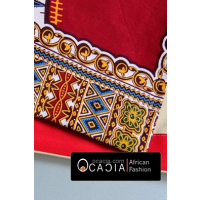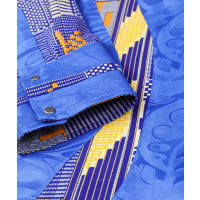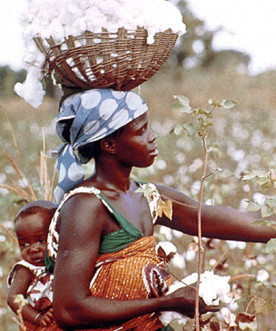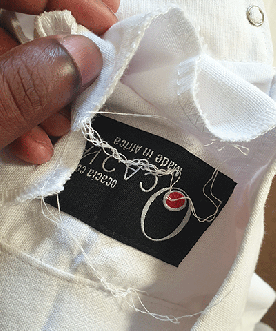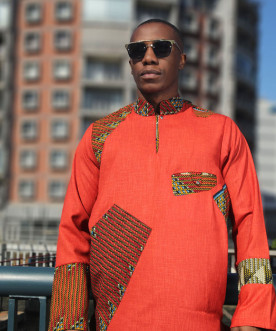Quality Matters
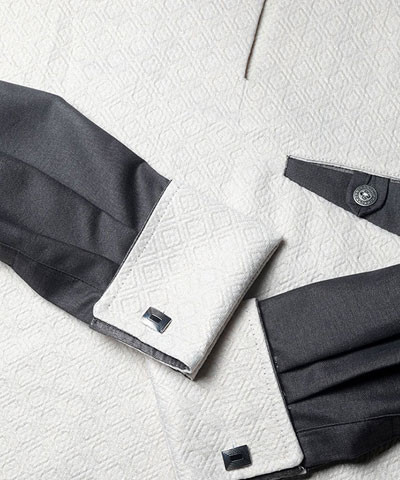
Jun 20 2021
The distance between bad and good is less than the distance between good and exceptional-- 'Alik Shahadah
Ocacia is a premium designer clothing company– that is what it says on our site. In Europe, no one asks why doesn’t Ferrari, or Channel, or Versace make clothes for minimum wage earners. Or why doesn’t the prestigious watchmakers of Switzerland do budget watches for the impoverished in Europe? It is an extremely stupid question, to be frank. Because why is there an expectancy on something African to cater to the image of Africa created by the West? Is every African poor and hungry? So by that extension should every single last African business cater to the poor hungry and destitute? Is that only Africa in existence? What does the question say about our mindset and attitude of self? If every continent in the world knows that a market has different economic brackets why would a business not exist to cater to the successful elements in Africa? Or should the successful African have to turn to Italian designers to get clothes since clearly, you do not expect them to wear $10 shirts to the office. Lastly, the market is in the hands of the other because a. we have no value for our craft and expect it to be cheap. b. we do not support any aspect of our industries; Low or high end.
But premium is critical to the growth of any industry. Almost every industry is top-down, the most beautiful artwork of any country is expensive. The most beautiful African mask takes time, and as a result costs. You see when the only products Africa produces for local consumption are low-end, it has a kickback to the quality of craftsmanship available in Africa. If there is no incentive for high-end African products and everyone is just trying to turn over cents, then the industry’s creativity dies. Now comes Ocacia and our dedication to quality, all of a sudden we can pay more, and artist can spend more time mastering their craft. An embroidery artist can spend ALL DAY on a job without worrying about pushing 10 low-end shirts. But without the premium products, there will be no premium craftsman. Then Africa will lose its market share forever. In addition to that China has no interest (yet) in moving into the premium African market. So premium clothes are the last remote sanctuary for African clothes. The processes involved in making premium clothes are not practical to China. So it allows African to hold on to what is left of their craft.

Europeans and Japanese are masters of this. There is nothing for consumption today in Europe or Japan that is not available in a high quality format. European (including American Europeans) did not get to technological greats by producing low quality products with the poorest in mind–no technology, no art does that. Not even in Ancient Egypt. Books in Timbuktu were not something the poor had in more abundance than the rich. Do you know how much these speakers cost? They are some of the best in the world. KEF, a British company, said it is obsessed with high quality and aesthetics. They are very different from the cheap Chinese speakers going for $10 bucks. And KEF makes speakers for those who can discern between $10 and $10,000. That is clearly not for everyone. But premium anything has a price. And when Europeans want to showcase the best of their best, it is those that push the boundaries of excellence that define their group. The same with Japan. What exactly defines the best of African premium couture? If no one is bold enough to make premium clothes to push the boundaries of African excellence? Did Italian cars become what they are with a target of substandard and budget?
And everything is top down. So the work of the tech giants like Samsung with their premium phones trickles down to the budget phones. It never happens in the reverse direction–it cannot happen in the reverse direction. And African fashion is the same. Almost every beautiful design you see was created at a premium level, others see this and make the cheap versions. Luxury watches innovation paves the way for budget watch designs. Both aspects of industry are valid, both are necessary as not everyone can afford $10,000 speakers. But if there is no one to buy the expensive then art and innovation become dead.
It is not the duty of every business with the word “African” in it to cater for the impoverished: That image sold to us as our default state. There is a huge middle and upper class in Africa that has the money to spend on premium clothes. Premium clothes showcase the best of African creativity and quality.
Budget clothes made in bulk by Africans have no chance of beating China because the Chinese make the machines, make the yarn, on and on.
Has anyone here watched Masterchef? If you have you already know where we are going. You see Europe has established for over 400 years standards by institutionalizing what they do. They did not rule the world by brute force alone. Look at the standards and how they secure them on Master Chef. But in Africa, I fear we do not really get it. You see when you start talking about standards of excellence and becoming more than a continent of beggars people think you are the bad person.And this is how Europeans established their institutions may it be in cuisine, tennis, fencing, law, on and on.
In Africa, fashion is largely informal. There are no bodies that govern over standards. There are no websites that give accreditation for embroidery work. No regulations, no master and grandmaster. It is largely undocumented.
Authentic African fashion industry is one sad state. You Google African fashion or see it on Pinterest and very little you see can be purchased, most only have
a Facebook page or at best a tiny spot on someone else’s trading site (like Etsy ). Now go and do the same for Indian clothes and see the difference. And what about quality? Most African shirts cost upward of $60 US dollars. And for something handmade, this is not actually a lot, if the item is made properly. The image on the right is an example of a shirt that sells for $70, it is not a designer brand, it is not made properly, it is not linen. But yet it cost only $10 less than an Ocacia original. So how does the industry compete if someone must pay $70 for a basic cotton shirt with some fabric glued together with the raw edges exposed? High prices for Western clothes may be ridiculous but there is certainly no issue regarding quality, even at $40 USD. But many African clothes are flea market standards aka bush quality (Tanzania), West Walk (South Africa).
So the challenges to the industry are two-fold. A poor product and poor support and the two are often integrated as consumers assume anything made in Africa will be sub-standard (just like Nollywood films) but the primary issue for non-support is lack of value for African culture due to mental enslavement and self-hate.
SUBSTANDARD LOOP
One reason why African goods are inferior in general compared to their global counterparts is due to lack of support by African communities. A visit to any African market from Durban to Dublin in Ireland is filled with low-quality African attire. But you will find many low-quality products in such places. But as you will find low-quality flea market quality of almost every nation, you will also find a premium level version on the high streets in exclusive boutiques. in Durban some really substandard African clothes selling for R250 (divide by 16 for the US), the clothes are horrible. But people do not want to spend, so how can they offer premium clothes for R250? They cannot. How can they spend all day clean work and attention to intricate detail? They cannot. We spoke to one embroidery guy about his messy work, and he said he has to do embroidery in 30 minutes per shirt to just break even. People do not want to pay for quality so he cannot afford to do it. do not want to support. It creates a circle. There is no incentive for people to do higher-quality work and use premium fabrics if there is no value for the work. Alternatively Chinese and Indian fake African shirts are now selling for R150. You can start to see where the real problem lies– in lack of support. Hence the industry dies, and as it dies quality goes down. We get really offended when people complain about our prices. We ask– have you seen the clothes, do you know what a linen top (anywhere by anyone) cost? Our prices are way below what they are worth. Had we made these clothes back in the UK or Italy the prices would have to double for us to keep the lights on
TERRIBLE
We were Googling African clothes vs Indian clothes looking at what was on offer. And I tell you (and I need to be honest) it is one big joke. Everything African looks the same. I mean you get your classic African designs which are always going to look good. But I find it is just downright awful and depressing the lack of creativity, the clash of colors, the horrendous presentation– my word. I think the idea is get a skirt and to make it African just make it from some African print!!!!!!!! Get the loudest colors with elephants and drums and make a dress with it and you have an African design. And you do get proper designers out there doing amazing things but how do you find them? Now go and search for Indian clothes and see the huge quality difference! We have work to do.
Africans are not only poor as a group because of external forces. There is also a serious problem internally. The concept of hard work might be familiar to some, but working smart is not that popular. So the continent remains un-educated (where education is a holistic understanding of how the world works and our role in it). Working smart means working together, working together means being able to increase the African bargaining power. But in the African fashion industry that sophisticated level of working together does not exist at a level to challenge the global obstacles in our way.
Considering how tight things are economically and how many Africans are struggling to make ends meet we find it surprising to hear tailors tell us how slow and quiet business is, yet when offered the opportunity to earn a much-needed income they seem all of a sudden to be so financially secure they not that serious. One was supposed to come on Sunday at 8, then it was 10, then it was 12– he never showed he never called. In the last call to him he said “I am on the way”, But these is the same people who complain about how tough life is. And this is our experience continent-wide. And it is no surprise we also have the poorest continent economically despite all the wealth and talent. And it is not only laziness and poor attitude to work, it is also stupidity (to be blunt). Low-educated people who make very poor choices. In the above example, the tailor from Malawi planned to come but decided to go to a bar and drink one beer on the way to our offices. He never made it. He is not only out of a job for that day, but he is also out of ever being called back since it happened about 4 times now. He is not dependable, hence no business can create a solid foundation on anything as fickle as poor workers.
CONCLUSION
If you do not build your own house– you will have to live in someone else’s. If you do not master your factories, you will have to work in someone else’s factory. Their culture will dominate, not yours, as you are their client. At Ocacia we see the world through the eyes of people who have AGENCY. We create the world we want to live in. We do not complain about the world as it is and tuck our hands in our pockets.


